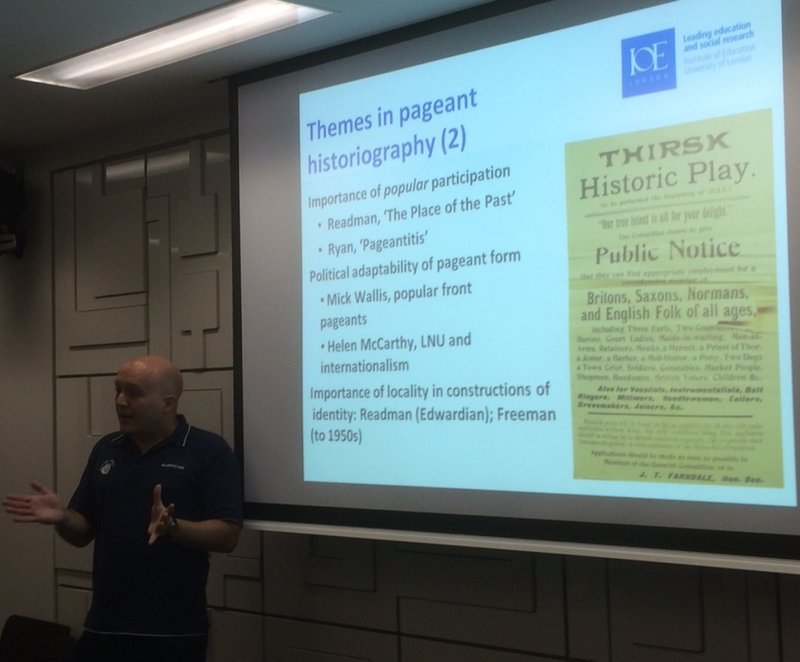Pageants at the IHR local history summer school
On 22 July I took part – on behalf of the project team – in the Institute of Historical Research local history summer school. This is an annual event, and the 2015 theme was ‘Local History of the Twentieth Century: Possibilities and Pitfalls’. The organiser was Richard Hoyle, director and general editor of the Victoria County History. As Richard remarked in his opening address to the summer school, the twentieth century is surprisingly under-researched by local historians, although this is beginning to change. For example, one contributor to the event, Kate Tiller from the University of Oxford, drew attention to the large field of work on the First World War and remembrance, stimulated by last year’s centenary. Other contributions looked at the history of rural housing and electrification, urban housing and slum clearance, and various sources that twentieth-century local historians might use.
I was asked to speak about pageants, of course. I focused mainly on the research I had done for my 2013 article, centred on the St Albans pageants of 1907, 1948, 1953 and 1968. I also used material from some other pageants, such as the Thirsk Historic Play of 1907 (see picture below). The main aim of the talk was to draw attention to the possibilities that exist for researching the history of pageants at a local level, and consider the different lenses through which these events might be viewed by historians.

Above: I talk animatedly about historical pageants. The
Powerpoint slide shows a handbill from the 1907 Thirsk pageant or ‘Historic Play’, advertising for actors,
including one scene that was never actually performed.
Historical pageants are an excellent topic for local historians to study. There is often abundant material in local record offices, and the local press often covered them in great depth. Our initial survey of record offices and local studies library for this project found more than 400 pageants that had left an archival record, and this has proved to be a huge under-estimate.
As usual, I asked the audience whether any of them had been in a historical pageant, and one had – the Guildford pageant of 1988. As it happened, the earlier Guildford pageant, in 1957, appeared in my presentation. The 1988 pageant was produced by David Clarke, whose archives are in the Surrey History Centre, and who worked with Christopher Ede on the earlier Guildford pageant.
Mark Freeman
